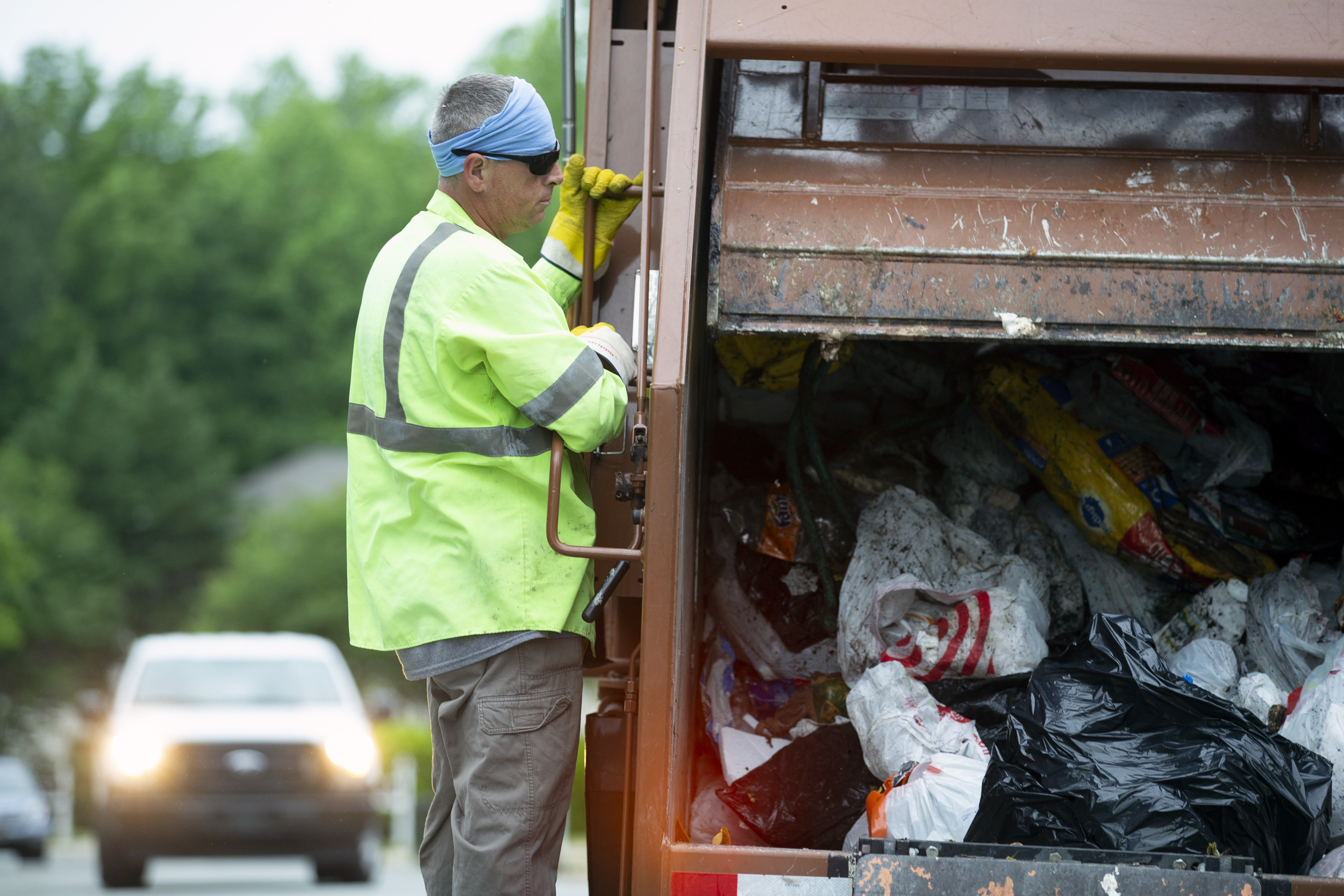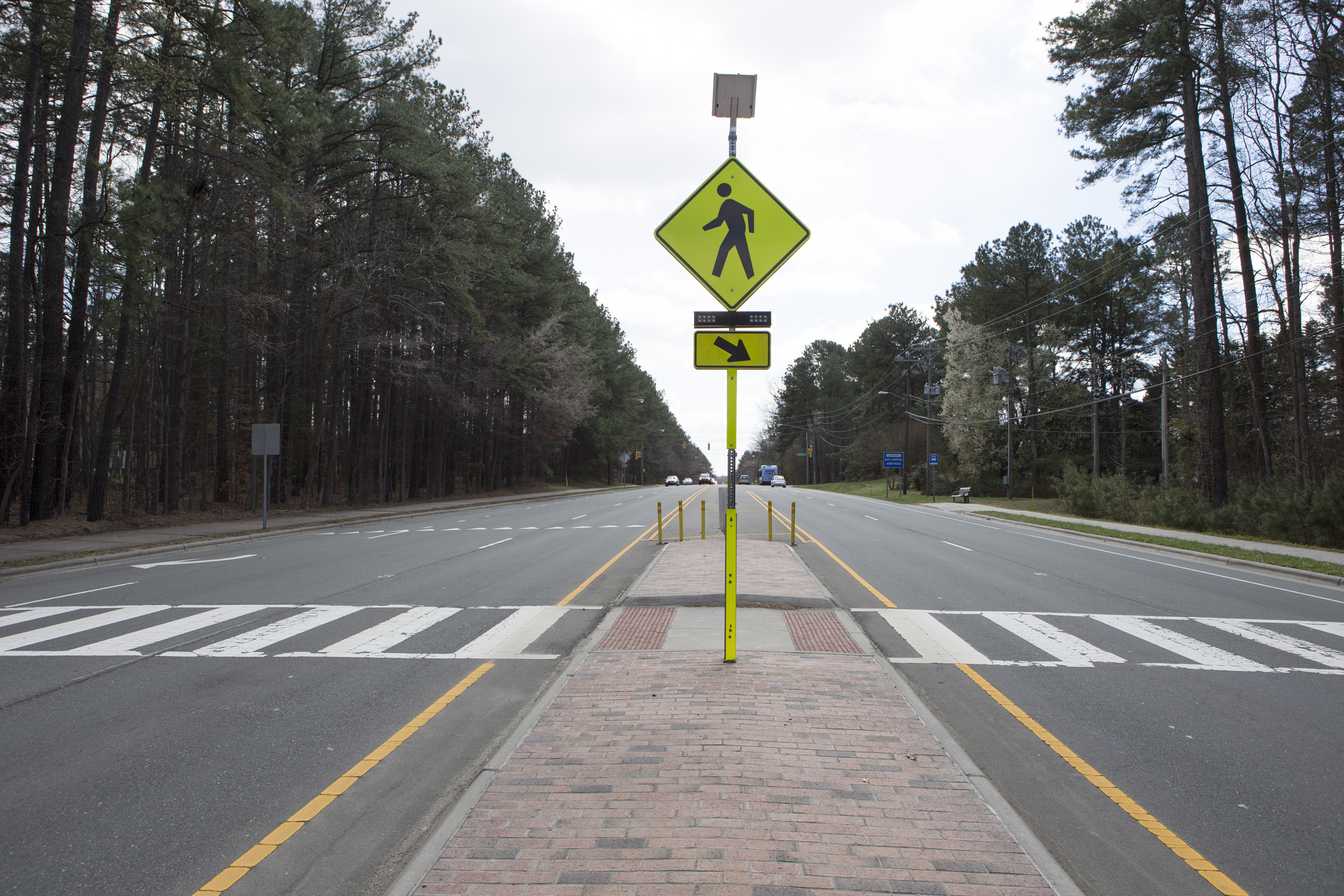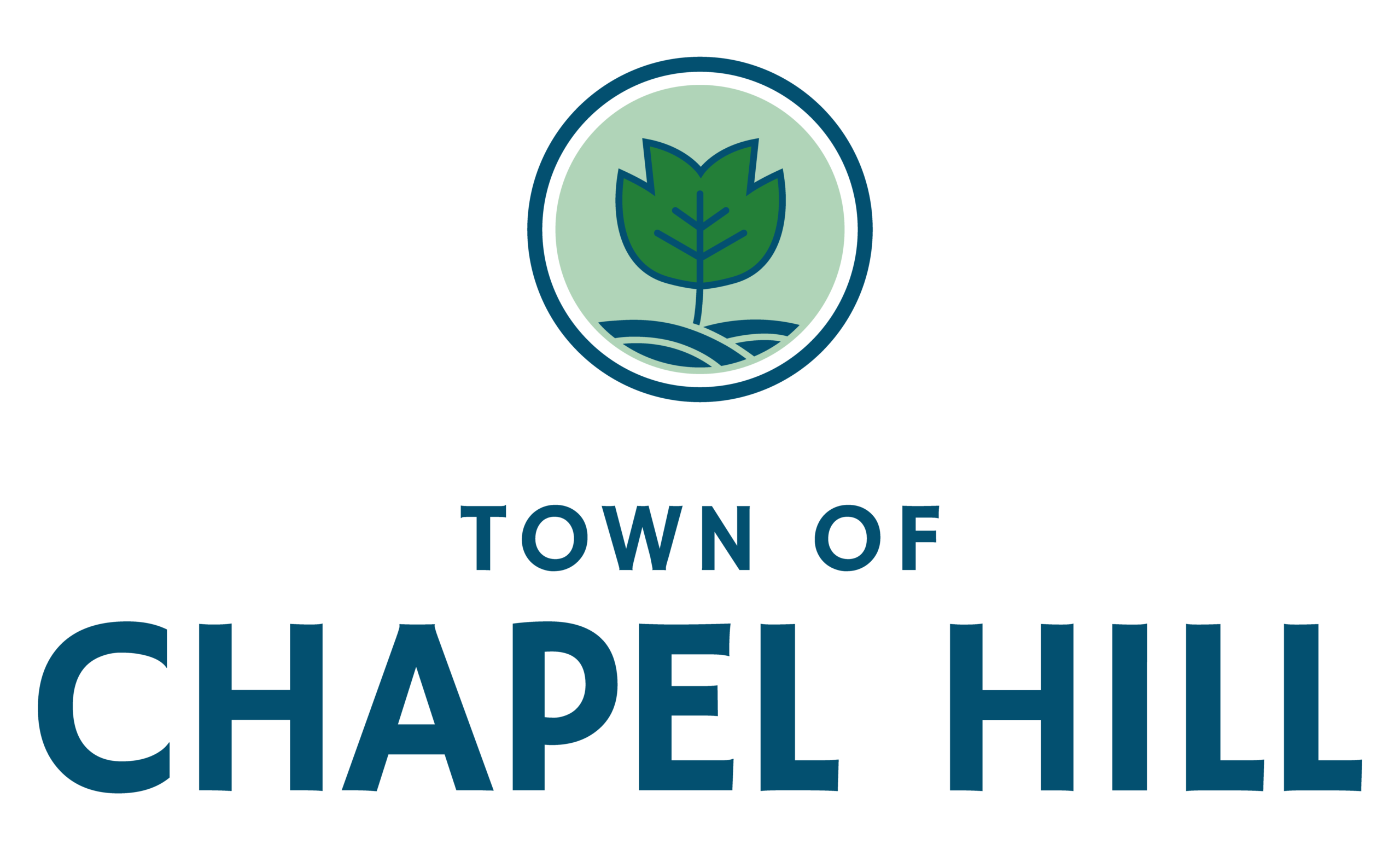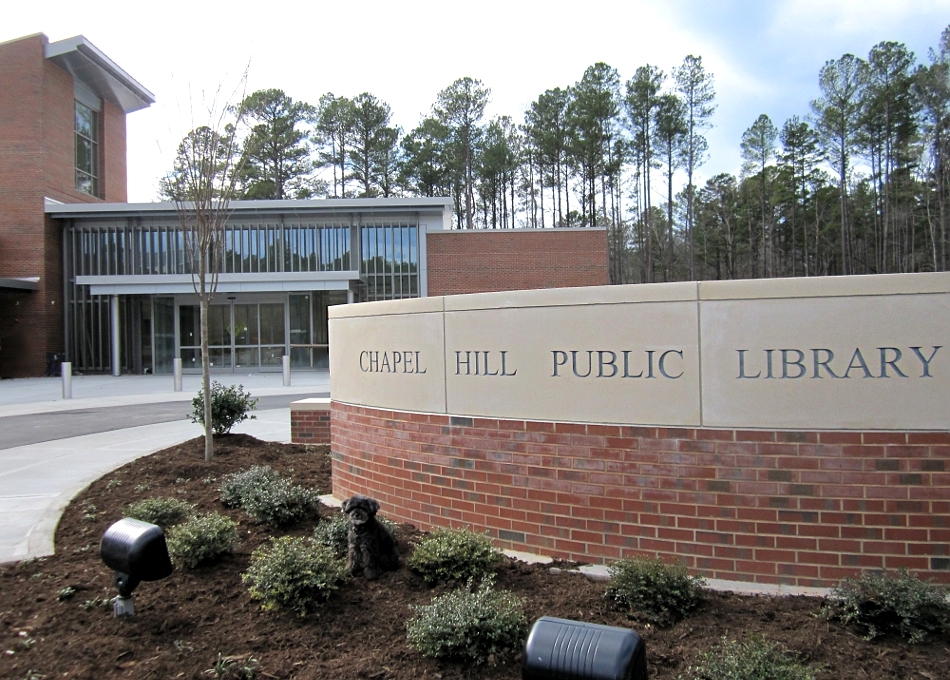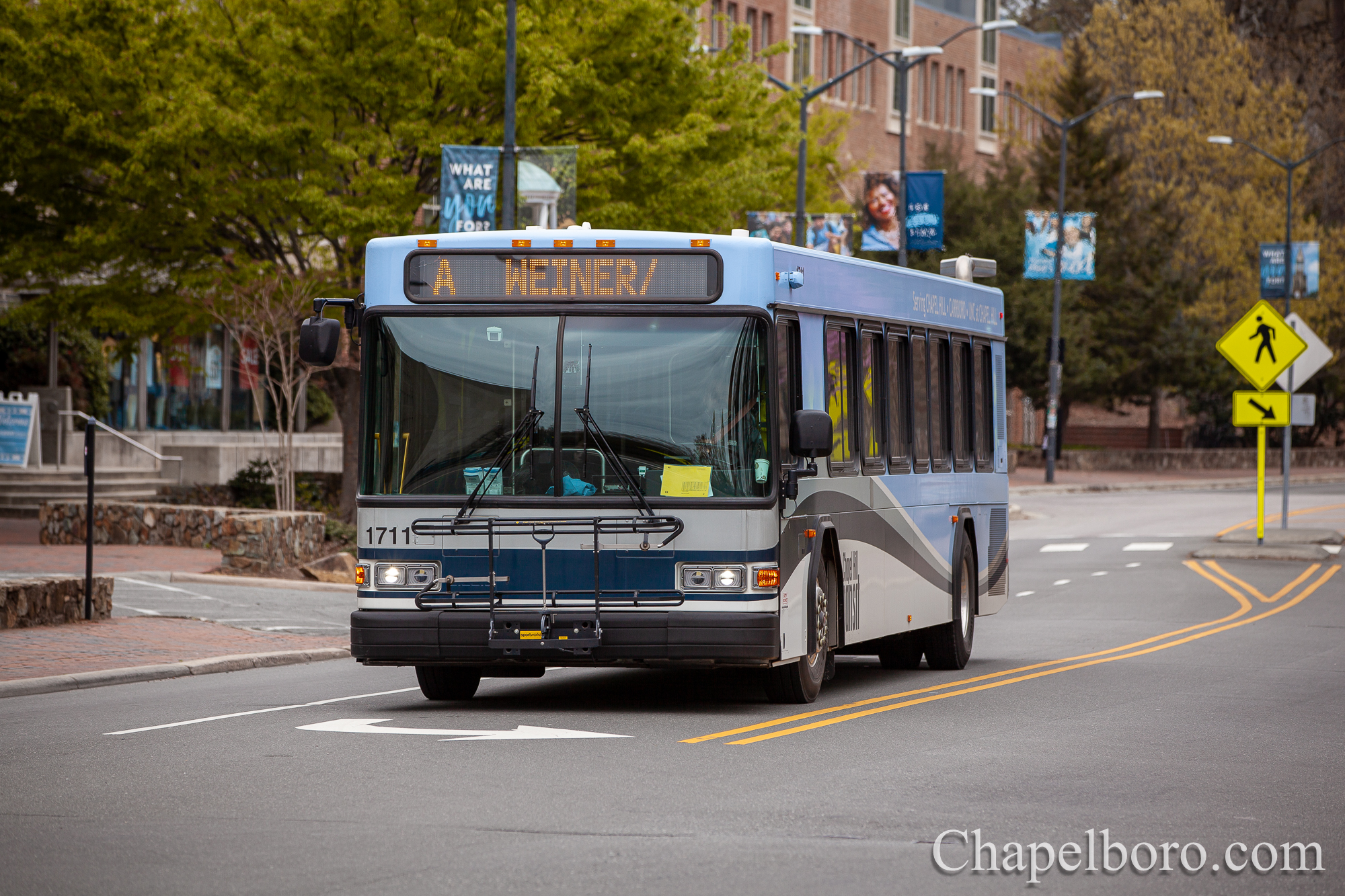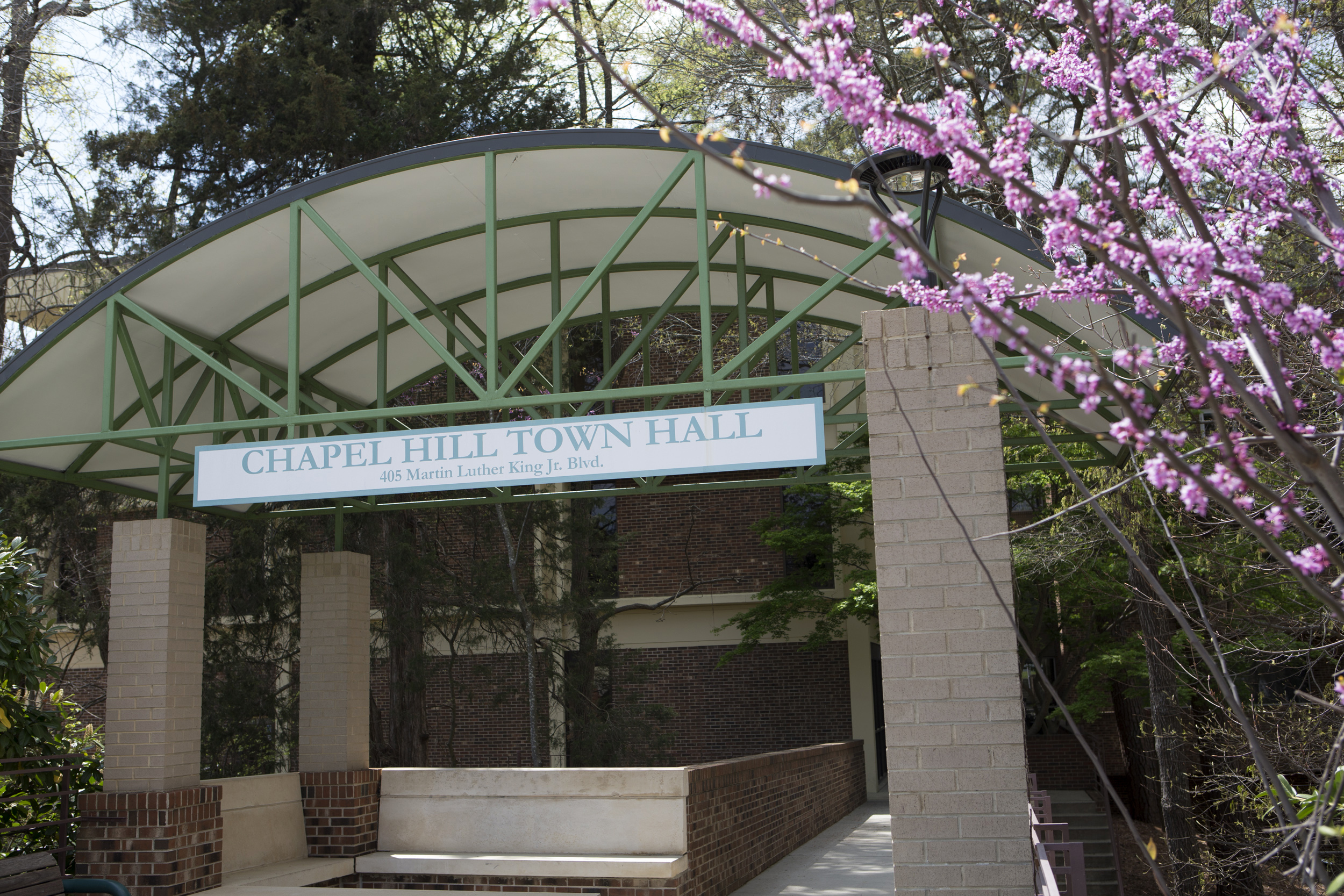A few weeks ago, some Chapel Hill and UNC social media users were set abuzz after a document was shared on Twitter saying the town would consider a new ordinance on parties. The response led to the draft being shelved for now, as the organization who made it is still exploring ways to deter high-risk drinking.
The proposal comes from the Campus and Community Coalition to Reduce the Negative Impacts of High-Risk Drinking – a group through the Chapel Hill Downtown Partnership. It’s worked for more than two years examining the possibility of a social host ordinance, which is town-level legislation meant to reduce both under-age and dangerous drinking.
That context wasn’t shared when an anonymous account posted a portion of a draft proposal on Twitter. The document indicated it would be unlawful for people to host “loud or unruly gatherings,” which were defined as more than two people whose actions are “dangerous, prejudicial or detrimental to the public health, safety and general welfare of its citizens” and those nearby.
When UNC senior Neil Pierre-Louis saw it, he at first thought it was fake.
“Honestly, the more I read it,” said Pierre-Louis, “the more I was like, ‘This is a real thing.’ And I wasn’t angry, but I was really annoyed.”
Pierre-Louis, who lives in a house off campus, said he enjoys hosting and going to parties. From the portion he saw, which outlined the definition of “loud or unruly gatherings” and the financial penalty, the senior said he felt like it would be challenging to equally enforce.
“One thing I really didn’t like about the ordinance is how vague it was, and it leaves it up to the officers’ discretion,” Pierre-Louis said. “Even if they were trying to be impartial, if you don’t have a baseline for what constitutes as ‘unruly gatherings,’ it’s definitely going to be a mess in terms of being fair to everyone.”
The Campus and Community Coalition includes some law enforcement among its membership, but the dozens of partners include university, health and even small business representatives.
The Marian Cheek Jackson Center, which is an advocacy and historical hub for the Northside, Pine Knolls and Tin Top neighborhoods, has its executive director on the coalition. George Barrett said his organization was a leader in the group’s exploration of a social host ordinance. He said some residents in historically Black neighborhoods have long shared that student gatherings in nearby houses can be disruptive and that they’re concerned for the students’ wellbeing.
“What we’ve always heard,” said Barrett, “is residents saying, ‘It’s not like we’re any bit opposed to students. We just want the students to respect the neighborhood and join into the fabrics of history and traditions of this place for so many years.’”
Samantha Luu, the director of the Campus and Community Coalition, said since her organization’s goal is to reduce harm related to alcohol, a social host ordinance could be a solution. She said she sees it as an additional tool for the community to act safely.
“So, the idea that we’re proposing in our draft is that this ordinance would be a deterrent to people having these large gatherings,” she said. “We are not anti-party: people should socialize, it’s healthy for them to do so. But we want people to think more critically before they throw a large gathering that might be disruptive to the houses and homes around them.
“I think that was really interesting [to explore],” Luu added, “especially as we think about the Coalition as a public health-focused organization.”
Barrett said over the course of compiling data from other similar ordinances, the coalition spoke with representatives of Fort Collins, Colorado. The city near Colorado State University implemented its own social host ordinance in 2016 and Barrett said it’s been successful in limiting high-risk drinking.
“One of the things that I remember from that conversation, which I think supports that being a preventative measure,” he said, “is individuals saying they did not actually have to use the ordinance [to give] citations or fines to those houses that much. Because, knowing that it had so much clear accountability to it, that actually was the factor that changed behavior.”
Some of the social media uproar expressed included community members’ concerns about whether the goal of the ordinance was to expand police power. Since the ordinance is a civil penalty instead of a criminal one, Chapel Hill Police’s involvement would largely be responding to any calls of disturbance or loud noises. The department reported 245 such responses in 2019, 291 in 2020 and 264 throughout 2021.
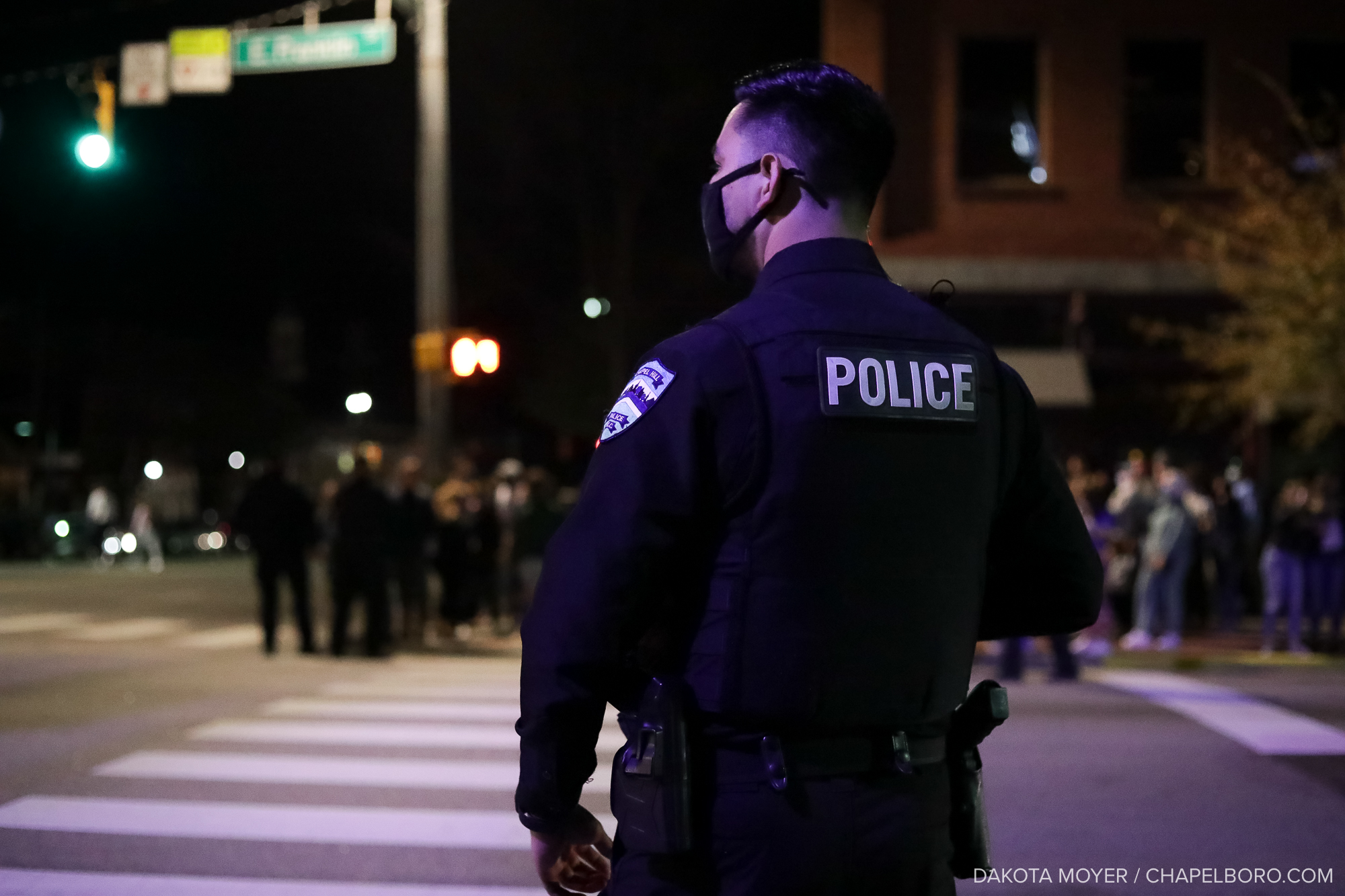
A Chapel Hill Police officer monitors the crowds of students on Franklin Street in downtown. While police are called for noise disturbances and other ordinance violations, the department is not involved with punishments because they are civil offenses.
Even with the context of the Coalition’s intentions, Pierre-Louis said he is still skeptical of such ordinances’ effectiveness. While he typically uses UNC’s party registration tool and regularly communicates with his neighbors before gatherings, the senior said he could see how some community members could misuse the ordinance.
Pierre-Louis added that while he believes students would be concerned about the high fines from violating the ordinance, it may not deter those who engage in high-risk drinking the most.
“The idea of punishing is not going to [work],” he said. “Students will always find their way around things. When you put these barriers, it just becomes more dangerous, in my opinion.”
What’s the likelihood we’ll see a social host ordinance in Chapel Hill? The Campus and Community Coalition initially planned to bring a draft for the Chapel Hill Town Council to consider at Wednesday night’s meeting. Since then, the group has told 97.9 The Hill they are going to aim for more community input before formally bringing any proposal before council.
Photo by Darlene Alderson.
Chapelboro.com does not charge subscription fees, and you can directly support our efforts in local journalism here. Want more of what you see on Chapelboro? Let us bring free local news and community information to you by signing up for our biweekly newsletter.


